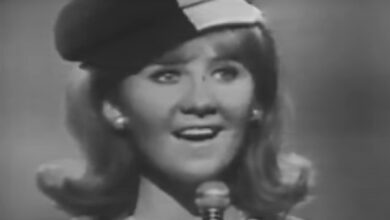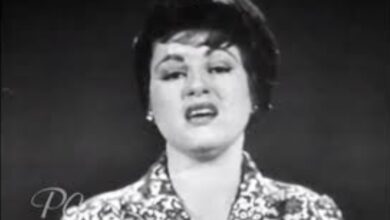Alan Jackson’s ‘I Want to Stroll Over Heaven with You’ Brings Comfort and Faith
In 2006, Alan Jackson released I Want to Stroll Over Heaven with You as part of his gospel album Precious Memories. While the album was a departure from his usual mainstream country sound, this song stood out for its heartfelt delivery and deep emotional resonance. The track quickly became a fan favorite, celebrated for its uplifting message of faith, love, and the hope of reuniting with loved ones in the afterlife.
Alan Jackson had already established himself as one of country music’s most authentic voices. Born and raised in Georgia, his traditional approach to storytelling and his ability to connect with listeners set him apart. Known for blending honky-tonk sounds with heartfelt ballads, Jackson’s career was built on sincerity, and his foray into gospel music was a natural extension of that.
The song itself was originally written decades before Jackson recorded it. Composed as a reflection on faith and longing, it was inspired by the idea of walking side by side with a loved one in heaven, free from the worries of earthly life. It was a message of peace and hope, resonating deeply with those who had lost someone close to them.
When Jackson recorded the song, he worked with longtime producer Keith Stegall, ensuring that the production remained simple and authentic. The arrangement featured gentle acoustic instrumentation, allowing Jackson’s warm, rich vocals to take center stage. There were no flashy production techniques—just a pure, heartfelt rendition that emphasized the song’s powerful lyrics.
Upon release, Precious Memories became an unexpected success, debuting at No. 1 on the country charts and earning praise from both fans and critics. While I Want to Stroll Over Heaven with You was never released as a single, it quickly became one of the most cherished songs on the album. Its soothing melody and comforting lyrics made it a staple at church services, memorials, and family gatherings.
More than just a beautiful song, it marked a significant moment in Jackson’s career. While he was known for his chart-topping country hits, this gospel project revealed another layer of his artistry. It showed his willingness to step outside the mainstream and create music that was deeply personal, rooted in his upbringing and beliefs.
The song’s impact extended beyond just Jackson’s career. It reinforced the idea that gospel and country music have always shared a deep connection, with themes of faith and devotion often weaving through both genres. Jackson’s version introduced the song to new generations, solidifying its place as a modern gospel classic.
Many artists had performed the song before, but Jackson’s rendition stood out for its warmth and sincerity. His smooth, unpretentious delivery made it feel like a personal prayer, a sentiment that resonated deeply with listeners. Over the years, the song continued to be performed by other gospel and country artists, further cementing its legacy.
At the time of the song’s release, Jackson was also dealing with personal loss. His mother, Ruth Musick Jackson, had always been a strong influence in his life, particularly when it came to faith. This song held special significance for her, making it an even more meaningful addition to the album.
Over the years, I Want to Stroll Over Heaven with You has remained a beloved part of Jackson’s discography. It’s a song that fans continue to request at his live performances, proving that its message remains as powerful today as it was when it was first written. The track’s enduring appeal lies in its ability to provide comfort and reassurance, reminding listeners of the promise of eternal peace.
Beyond its immediate impact, the song also contributed to the growing trend of country artists embracing gospel projects. Jackson’s success with Precious Memories encouraged other artists to explore similar paths, proving that gospel music could find mainstream success without compromising its authenticity.
The legacy of I Want to Stroll Over Heaven with You is one of hope and timelessness. It serves as a reminder that music has the power to heal, offering solace to those who need it most. Whether played at a Sunday service or a quiet moment of reflection, it continues to bring peace to those who listen.
Jackson’s version of the song will likely be remembered for generations to come. With its simple yet profound message, it stands as a testament to the enduring power of faith and the belief in a reunion beyond this life. For many, it remains more than just a song—it’s a source of comfort, a reminder of love that never fades, and a hymn of reassurance in uncertain times.



